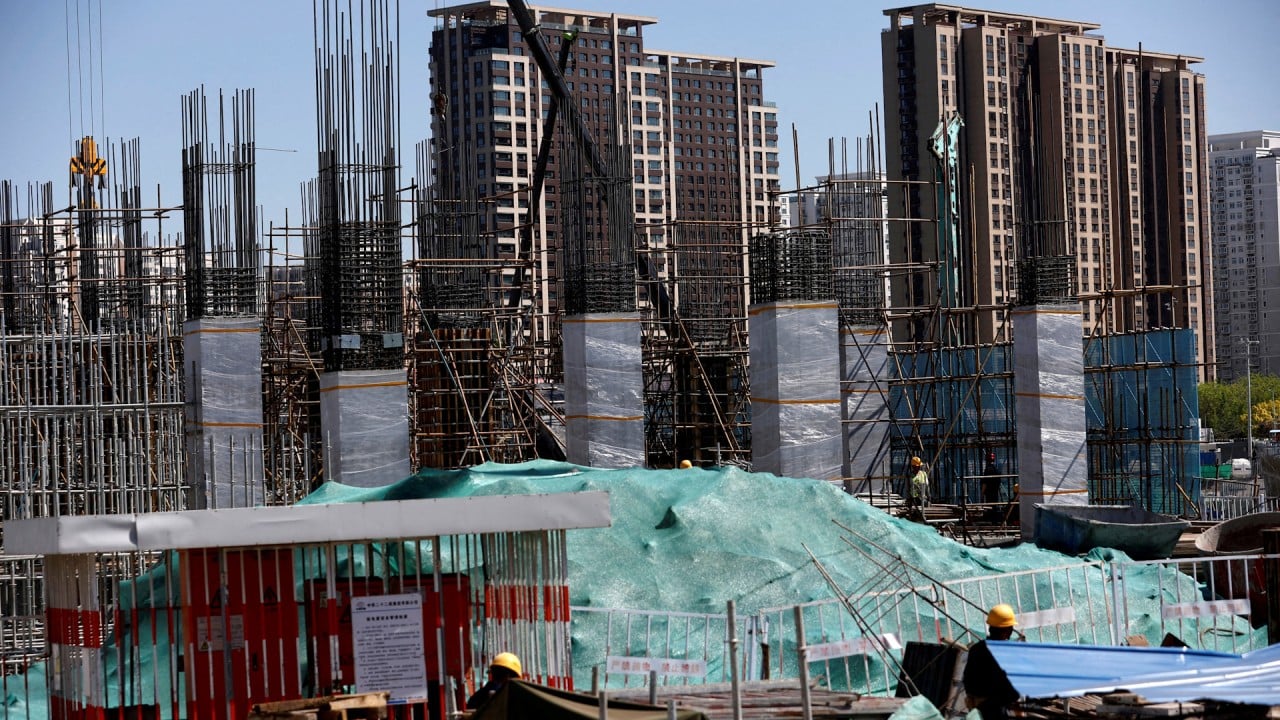
Will China bring out the ‘big bazooka’ to revive its economy? I would bet on it
- Chinese leaders are wary of worsening the economy’s structural imbalance, but if light-touch measures continue to fail to lift business and consumer confidence, it could be only a matter of time before they take firmer action
A tax on salt was thought to have been first levied in China around 300BC, to help fund the construction of the Great Wall. Salt has been prized throughout history; used financially, fiscally, politically and indeed medically for its anti-inflammatory and antibacterial properties.
There are few matters more emotional than getting sick or losing money, as seen by the panic of the “salt run”.
The renminbi is down more than 5 per cent against the US dollar this year. Wealth management products are in trouble. The still-tight economic policies of the Covid-19 times have seen foreigners do a salt run of their own, with overseas funds selling more than US$10 billion from China’s stock markets over just 13 days last month.
On the other side of the Pacific, current US economic indicators seem to show a perfectly balanced economy, with 2.1 per cent growth in the second quarter, 3.2 per cent inflation in July, and 5.25-5.5 per cent interest rates. The Federal Reserve has made many poor decisions over the past decade, but the US has had the great good fortune of unforeseen economic strength.
Of course, the US may still pass through this Goldilocks’ period into recession. The bottom line is that the American economy has been bailed out since 2008 by historical levels of financial stimulus every time it wobbled.
China has not reflated in the same way after the pandemic and this is a big puzzle, at least to Western economists. The Chinese economy is different because of its size and structure. A HK$10,000 (US$1,290) Hong Kong-style consumption voucher would cost an eye-watering US$2 trillion, but when tested in several Zhejiang cities three years ago, the scheme worked well, one study found.

The structure of China’s economy lends itself to liquidity mainly supporting banks, state-owned enterprises and local governments, and this has taken the easy route into infrastructure and overleveraged property. The Chinese authorities are hesitant because they are alert to the need to reflate the economy without unhealthy consequences.
Why China is reluctant to launch a massive economic bailout
Yet, trying to manufacture confidence is like pushing on a piece of string. It takes time and money to move the psychology from the Covid-19 lockdown years when people needed to save and not spend. Unfortunately, tinkering around the edges spends the ammunition of the economic authorities and is quickly swamped by the gathering gloom.
Investors must take a bet on China prudently persisting with these piecemeal measures. This risks a lengthy period of economic bad news, leading to continued defaults of overleveraged companies and local governments – a tab which the government will have to pick up.
The alternative is that the authorities decide to fire the “big bazooka” and inject liquidity, as has been successful in the West. This would pump-prime the economy through one-off, shocking but substantial measures, like the US’ quantitative easing or inflation-reduction programmes.
Investors must take the probabilities of what they think the mainland economic authorities will do and turn those into a deterministic decision; whether to buy now or hold off. My bet is that the authorities will finally move to reflation.
If that is the case, the best place to invest should be Hong Kong. Our markets are like a warrant on China – we do worse when the Chinese economy does badly, and better when it picks up. Salty emotion makes investment-decision making illogical, but rational investors turn their probabilistic bets into deterministic action.
Dr Richard Harris is chief executive of Port Shelter Investment and is a veteran investment manager, banker, writer and broadcaster, and financial expert witness


